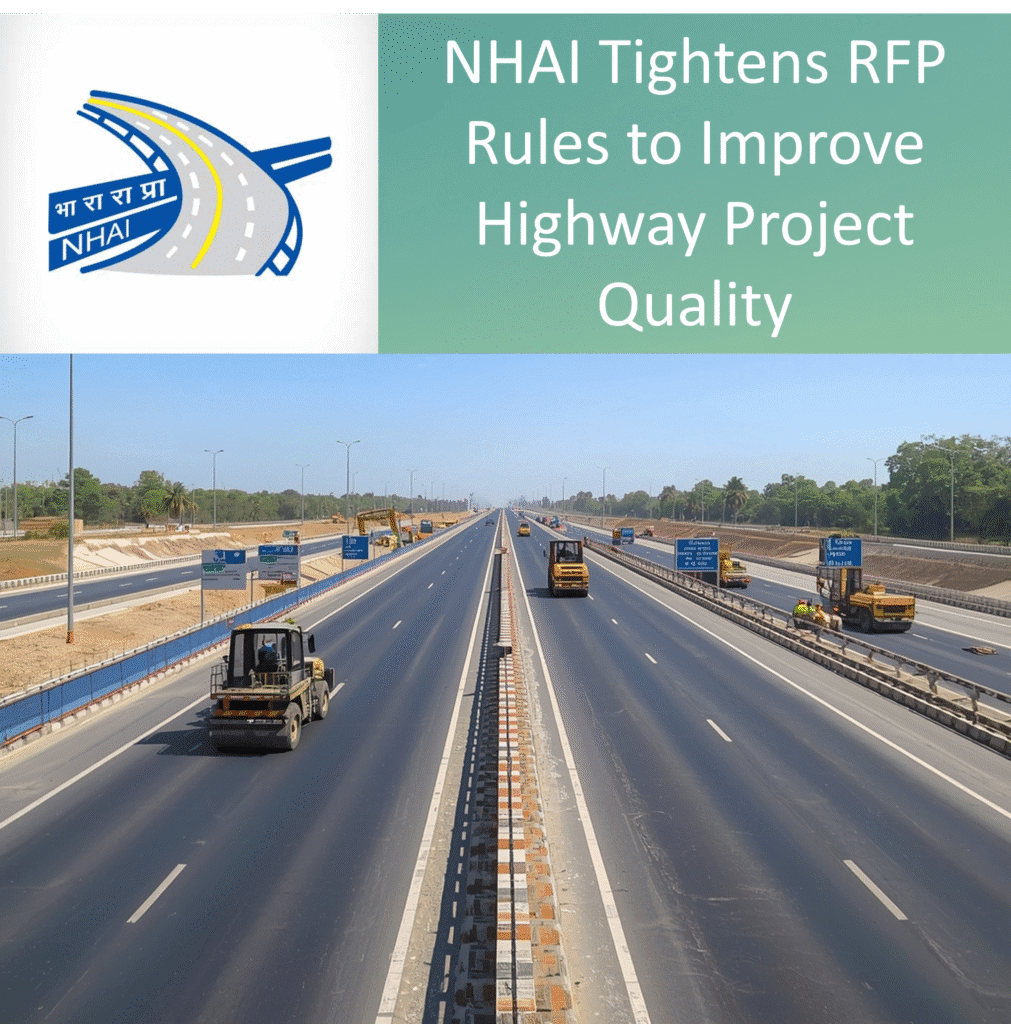New Delhi: The National Highways Authority of India (NHAI) has introduced stricter provisions in its Request for Proposal (RFP) guidelines to enhance the quality, accountability, and transparency of national highway projects. The move aims to reduce project delays, strengthen contractor qualifications, and optimize lifecycle costs in highway development.

One of the key clarifications issued relates to the definition of “Similar Work” in bid qualifications. Contractors will now only be eligible if they have completed full-fledged highway projects that include all major components comparable to the proposed project. This addresses previous loopholes where firms gained eligibility by citing minor or peripheral works.
The RFP changes also curb unauthorized engagement of EPC contractors in HAM and BOT (Toll) projects, as well as subcontractors in EPC projects. Any subcontracting beyond permissible limits will now be treated as an “Undesirable Practice” and penalized at par with fraudulent activities.
To strengthen financial accountability, NHAI has prohibited bidders from submitting bid and performance securities sourced from third parties. Only securities directly backed by the bidder or its approved entities will be accepted, ensuring greater enforceability and transparency.
According to NHAI, these reforms will ensure that only technically competent and financially sound contractors undertake projects, minimizing risks to quality and timelines. The measures are expected to improve regulatory oversight, foster timely completion, and deliver better-quality highway infrastructure across India.
Also Read: Piyush Goyal Launches IPRS 3.0 to Strengthen Industrial Infrastructure and Boost ‘Make in India’
